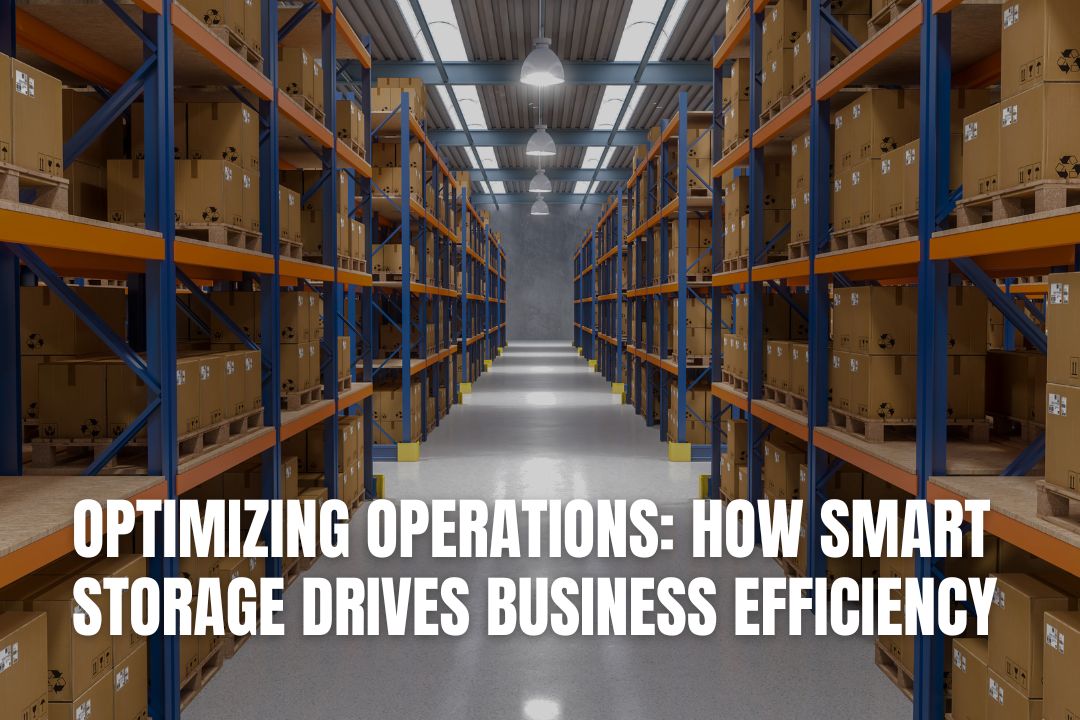
For every business, efficiency goes beyond just digital transformation. While cloud systems and AI tools have changed data management, many companies still struggle with a straightforward challenge: space. Whether it's surplus inventory, seasonal equipment, or assets for a hybrid workforce, new storage strategies are crucial for how businesses grow, operate, and remain flexible.
For many years, many businesses saw storage as just a basic need, not something strategic. However, office downsizing, eCommerce growth, and remote teams in various cities have made the need for accessible and affordable storage more critical than ever. Businesses now view storage like digital infrastructure, an essential part of operational recovery.
From startups to large corporations, smart storage involves more than just finding extra space. It focuses on:
These changes have turned modern storage into a surprisingly powerful business tool, especially in cities where commercial real estate costs remain high.
Today’s storage solutions are much more sophisticated than the old dusty units with locks. The best facilities now include technology that meets modern business needs:
The shift of storage into a "smart" utility mirrors how businesses use technology to reduce friction and increase up-time.
The move toward hybrid work has changed the role of physical spaces. As more companies use smaller offices or shared coworking spaces, storage acts as a buffer that keeps operations running smoothly. Instead of overcrowding office spaces or homes with supplies, teams can use nearby facilities as extensions of their workspace, storing everything from marketing displays to spare tech equipment.
For small businesses, this flexibility is priceless. It allows them to stay efficient while keeping access to necessary resources, supporting productivity without sacrificing space.
Renting smart storage can often save more money than expanding office or warehouse leases.
Here’s why:
In the end, storage is becoming a versatile resource, allowing businesses to adapt instead of overextending.
Sustainability is also influencing how facilities are built and used. Many operators include solar panels, motion-sensor lighting, and recyclable materials. Some even provide carbon-neutral operations to meet corporate sustainability goals.
For businesses aiming to lessen their environmental impact, these options are practical steps toward greener logistics, maintaining both accessibility and efficiency.
As more businesses embrace automation and IoT systems, storage facilities are advancing as well. Smart sensors, real-time monitoring, and AI-guided space tools help businesses use their rented space more effectively. For instance, automated alerts notify managers when stock runs low, while digital dashboards provide insights into usage patterns, helping teams make informed decisions about storage investments.
AI can also project when businesses might need extra units based on seasonal trends or previous actions, helping companies plan ahead and prevent disruptions. This proactive strategy aligns with the growing focus on predictive logistics—a key factor for long-term operational efficiency.
In competitive markets, being adaptable can make the difference between success and failure. Businesses that incorporate flexible storage solutions into their operations gain an advantage by:
This flexibility also boosts customer satisfaction, as companies can meet client needs more quickly and reliably. As organizations continue to focus on customer experience, a well-organized storage strategy enhances the digital tools supporting the customer journey.
The next phase of business storage will probably feature even more sophisticated options, including AI-driven inventory retrieval and sustainability certifications attractive to eco-friendly brands. Some facilities are testing drone deliveries or robotic retrieval systems for speedier pick-up and drop-off. Others are exploring modular designs, allowing businesses to tailor layouts to fit their changing requirements.
As technology continues to improve, the distinction between warehouse, workspace, and storage facility will blur even further. Companies will no longer see storage as a fixed cost but as a dynamic asset that directly supports profitability.
In a time when data flows easily across clouds and teams work globally, managing physical assets is still vital to operations. Businesses that wisely invest in innovative storage solutions can achieve significant savings, enhance agility, and strengthen their capacity to adjust to market changes.
From downtown startups to national companies, the message is clear: space isn’t only about where you work; it’s about how you work. In major U.S. cities, smart storage is helping businesses think bigger by storing smarter.
Smart storage refers to modern storage facilities that integrate technology to offer more than just space. These solutions typically include features like digital keyless entry, cloud-based inventory tracking systems, climate control, and advanced security monitoring, all designed to meet the dynamic needs of today's businesses.
You can reduce costs significantly by using smart storage instead of leasing more expensive commercial office or retail space. The per-square-foot rate for storage is much lower, and it provides the flexibility to scale your space up or down based on inventory or seasonal demands without being locked into a long-term lease for a larger property.
Absolutely. It serves as an ideal central depot for a distributed team. You can store shared equipment, marketing materials, or product inventory in a secure, accessible location. This prevents employees from having to store company assets at home and ensures everyone has what they need, wherever they are working from.
You can expect advanced security measures that go beyond a simple padlock. These often include 24/7 video surveillance, secure digital access control that logs every entry, individual unit alarms, and well-lit premises. This ensures your valuable business assets, documents, and inventory are well-protected.
Many modern storage providers are incorporating sustainable practices. This can include using solar panels for power, installing energy-efficient motion-sensor lighting, and using recycled building materials. Choosing a provider like this helps you reduce your company's environmental footprint as part of your logistics chain.